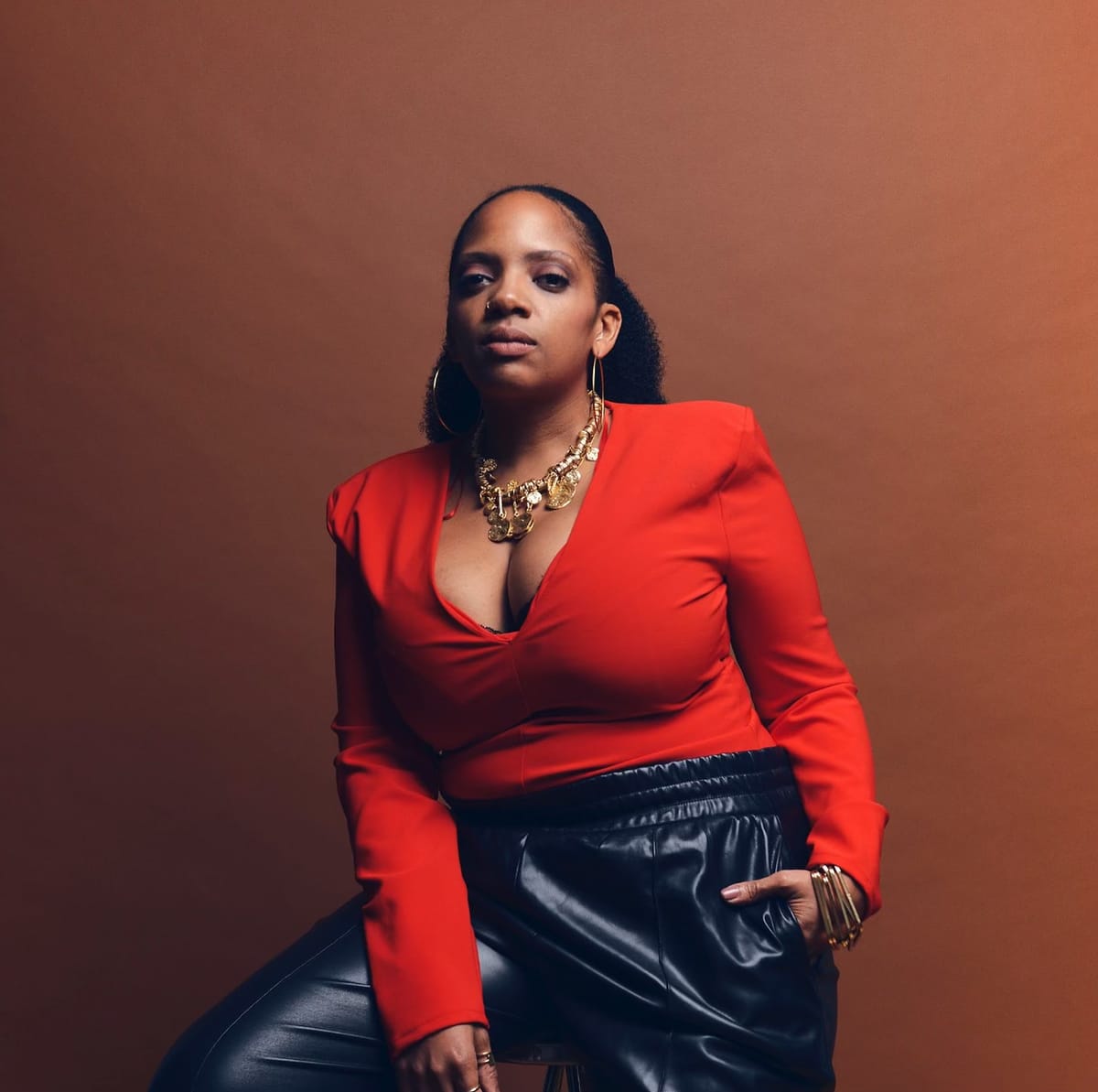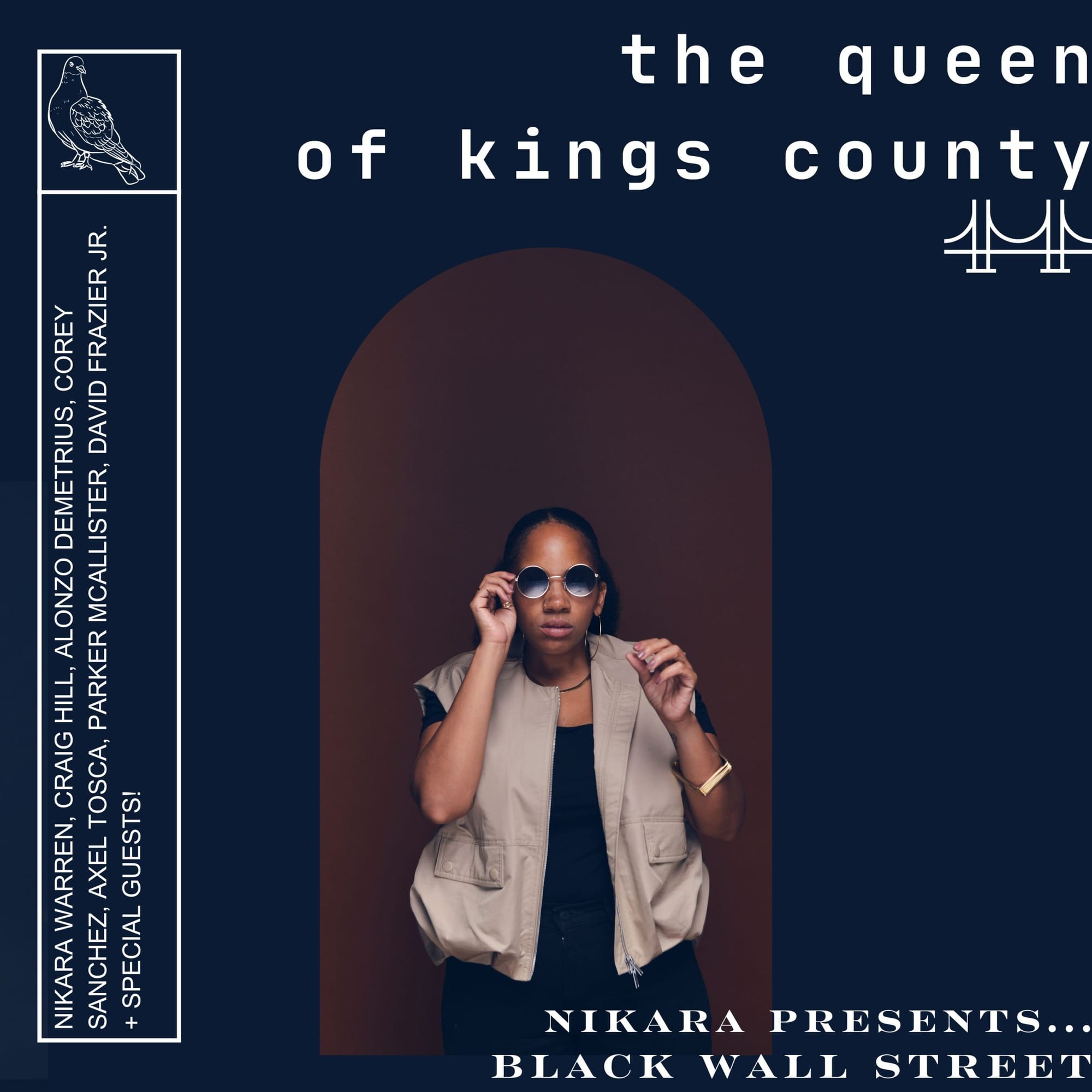Nikara Warren: exploring the heart of Brooklyn through jazz

The emotional ubiquity of a beloved city can shape a person’s being and feeling, even when they are miles away. With time, that city becomes a constant presence, weaving into their walk, expressions, thoughts, and creations—a place that turns intrinsic to their identity. This connection, known as topophilia, embodies an intense affection for a specific place, in this case, Brooklyn.

This story could begin on the third floor of Stratford Road, or in some corner of Eastern Parkway—but not in one of its most gentrified areas. "I’m definitely a Brooklyn girl through and through. I, of course, grew up here, and it’s a special place for me. Now, there are places in Brooklyn with high-end stores, like Gucci and Louis Vuitton. When I was a kid, those were spaces I couldn’t even imagine being in." These words and memories come from Nikara Warren, who has transformed Brooklyn’s colors, smells, and people into music. "I’ve seen so many versions of Brooklyn, and I feel like it’s made me who I am—my toughness, sense of soul, and a lot of my culture and connection to music all come from being from this city.”
Behind her latest album, The Queen of Kings County, lies one of the most cosmopolitan cities in the world and a group of musicians known as Black Wall Street: "I love those cats. We’ve all known each other for a long time now; the band had been playing live for about six or seven years before we even put out a record." Craig Hill, Alonzo Demetrius, Corey Sanchez, Axel Tosca, Parker McAllister, and David Frazier Jr., under the leadership of Nikara, who identifies as a composer rather than a vibraphonist, "When I compose, the best tunes are the ones that just come to me. I don’t write in a way where I’m thinking very hard about chord changes. For me, it's more like I sing the melody, if I like it, I'll put it down. A lot of things also start with basslines. I grew up listening to Motown, so a good bassline and a solid groove bring it all together. That’s a lot of what I love."
As the words unfold, certain patterns become more evident—one of them being her innate ability to identify what she likes, but especially what she doesn’t. This self-awareness is reflected in her album, where she recognizes that the vibraphone doesn’t need to be under the spotlight. "I know it’s a bit unconventional, but I’ve always felt that as a musician or someone putting music together, I don’t need to be soloing all the time. I don’t think every piece needs a vibraphone moment. Of course, I love to play, but my real passion is composition." From this perspective, it’s understandable that Warren becomes a curator of sounds and dialogues that transform the interludes into a cinematic experience, conveying the nostalgia she and her friends feel for old Brooklyn. "When I put out this art, I see it as a complete piece meant to be listened to in its entirety. There are moments where a vibraphone solo would have taken the energy in a different direction, and I didn’t think it needed to go there."
The county would never be the same without the people who inhabit it. In this production, there are central figures we can recognize through their voices, improvisations, or the legacy they left in life. "James Casey went to Berklee with me and played with Black Wall Street a couple of times. At that time, I wasn’t playing seriously, at least not in the way I do now. During my time in school, I didn’t realize how anchored I was becoming to certain types of instrumental and improvisational music. Even though I wasn’t performing, I was absorbing so much music, and James played a huge role in that entire era for me." James died in 2023 after a two-year battle with colon cancer. However, his encouragement continues to resonate. Warren reflects, "In those years, I was getting immersed in jazz instrumental music, particularly those big horn sounds and arrangements that felt different from the typical jazz format of ‘here’s the melody, let’s swing, and take turns soloing.' James had so much to do with that experience for me. I know he probably never realized this, but to me, he significantly shaped that entire period, which motivated me to take music seriously again and get back into it."
There are still places in Brooklyn that feel like a secret, and I don’t want to give away too many of those secrets because then the rent will go up! I love this city, and I’m going to keep shouting it out and continuing to show my support.
Through the rhythms and harmonies, it’s possible to feel, even if just for a brief moment, the calm a city brings. "I grew up on Stratford Road, on the third floor of my grandparents' house. The tune, ‘Stratford Penthouse,’ is inspired by that home." Since she was little, Nikara's life has been influenced by the music of her grandfather, musician Kenny Barron, who plays piano on this track. His presence and music were integral to the warmth of that home. "There’s a lot of love in that house, and I feel blessed to come from a place filled with this energy. Not everyone grows up in a home of so much love, so that’s what the song is about." Spending time alongside a legend is about more than just improvising on an instrument. "I attribute a lot of my ability to be a bandleader to him. Watching him gave me the confidence to take on that role. He’s a great sounding board, not easily impressed; he won’t tell you you’re amazing if it’s not true."
Though Brooklyn has transformed, it hasn’t silenced the inner questions that continue to drive the vibraphonist. For this reason, the album closes with a song embraced by those who never tire of showing who they are. "I love the song Don't Let Me Be Misunderstood in the voice of Nina Simone. The way she delivers the tune feels like a perspective I resonate with, especially as a Black woman navigating spaces where I’m trying to carve out my path. I’m not sure if there’s a lane that already exists for the things I want to do and the music I’m making." The live performances, studio recordings, and rehearsals don’t stop; however, the doubts persist. "I don’t know if there’s a space for a Black woman who is a vibraphonist, a composer, and someone who wants to arrange big, deep, heavy sounds. People often make assumptions about me: Oh, she plays vibraphone—let’s play some blues, you know? So, I hope I’m not misunderstood; I want people to understand where I’m coming from."
The Queen of Kings County is a place you can enter without a passport—a love letter, a collection of memories from a young girl, and the experiences of millions. At its core, it’s a 12-track album that draws us into Nikara Warren’s sonic world, one guided by the pulse of a city constantly in flux. In a society striving for global connection, Black Wall Street reminds us that you don’t need to board a plane to immerse yourself in Brooklyn... yes, the old Brooklyn.